27-year-old Scott Brown has been kindly sponsored by Hamilton Brothers to go on a two-week SAYFC Agri & Rural Affairs Study Tour to Canada, where he hopes to learn more about good sustainable farming practices. His family has been a customer of Hamilton Brothers for over twenty years, the latest additions to their machinery fleet being a Massey Ferguson 6713 and a JCB 532-60, bought from William Connolly, Area Sales Manager, both used on the Fortacres dairy farm in Kilmarnock, Ayrshire.
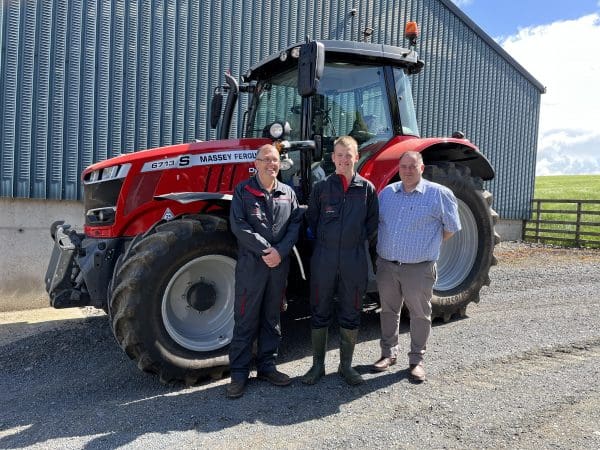
From left to right: Alistair Brown, Scott Brown & William Connolly
Farm Introduction
We’re here at Fortacres, a dairy farm in Tarbolton, with a herd of 170 Holstein cows. We grow about a hundred acres of cereals each year. My family moved here in 1998 from Ireland, and we have built up since then.
There’s myself, and mum and dad in partnership. We do most of our own work, and we all do bits of everything. I do most of the calf rearing and most of the tractor work, while mum and dad do most of the milking and I help along. I’ve also got a younger brother and two younger sisters who are not involved directly with the business.
Our milk goes to the brand Müller for the liquid market, a big manufacturer of dairy products.
We grow a mix between spring barley, winter barley and winter wheat, in an even split. All of our cereals are kept for feeding, and the straw is used for bedding or feeding.
It’s pretty steady. Milking’s twice a day, and we’re calving all year round, probably heavier calving to the latter end of the year, but most of the year we’re busy. There’s usually spring work, and plenty of jobs through the summer, with silage and harvest time being the busiest time of the year, especially because calving is usually fairly heavy at that point.
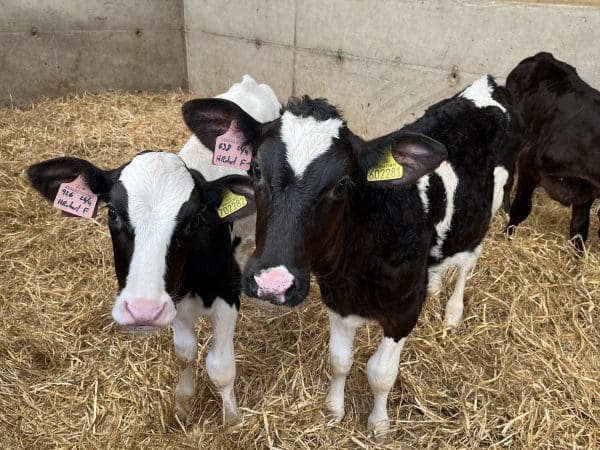
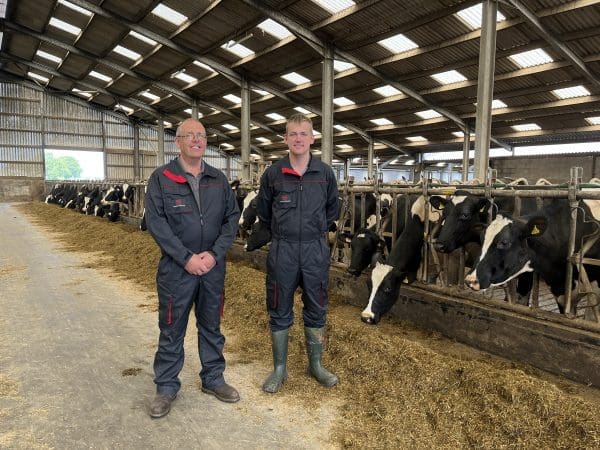
Hamilton Brothers Machinery
My family first bought a hedgecutter from Hamilton Brothers in 1999. I was only three years old, so I don’t remember much about it!
Hamilton Brothers is usually our first port of call for big machinery, such as tractors. We’re loyal to our brands, and we’re loyal to our dealership. They’ve always been there when we needed them. We have a good relationship with William, and we had a good relationship with our previous salesperson too.
We currently have four Massey Ferguson tractors. The first Massey Ferguson tractor we bought from Hamilton Brothers was a MF 4255 in 2001, which is still in use. We’ve had quite a few models since, but we’ve always stuck to Massey Fergusons. Our second one was a MF 5470, from 2011, which was the main yard tractor for a long time, until we got a second-hand MF 6480 in 2017. And finally, last year, we got a MF 6713.
I grew up with Masseys. Before our move to Scotland, we had Massey Fergusons on the old farm in Ireland. I just always liked them. Never found a reason to change. That pretty much sums it up.
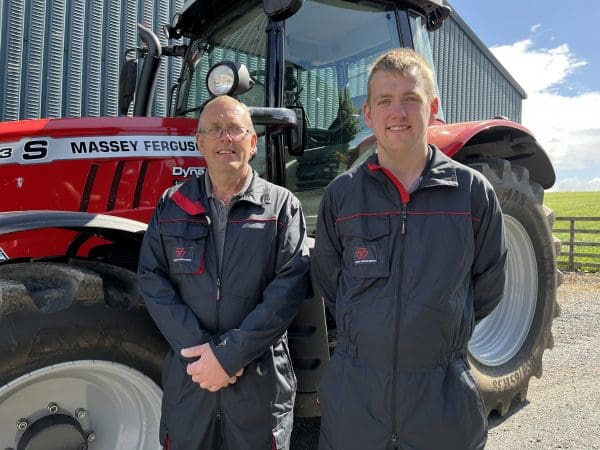
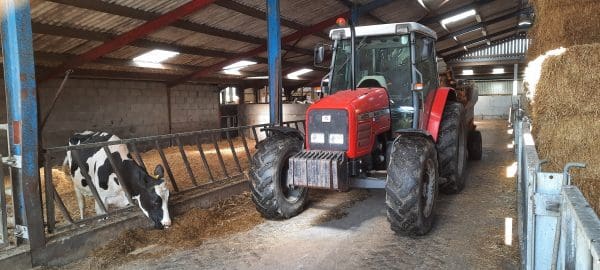
The MF 4255 does the straw bedder, the bail wrapping and all the hedgecutting, although maybe not this year. The MF 5470 is now primarily on the feed wagon, although it also has a loader for loader work. The MF 6480 is the biggest one, it’s used for the one-pass seeding, the front and back mowers, and a whole range of jobs in between. It’ll probably be the hedgecutting tractor this year. The MF 6713 does mainly the ploughing, but it’s also used with the slurry tanker and the round baler.
That’s a long story, that one. I suppose you could say we needed it at the time. The MF 5470 had been the second main tractor up until that point, but we bought a bigger diet feeder and needed a bigger tractor on it, so it got retired to feed wagon duties. We bought the MF 6713 to replace it on the plough and these sorts of things.
“Its power to weight ratio is incredible – you can do big jobs and wee jobs at the same time. The brake-to-neutral function is also very good, and I love the Dyna 6 gearbox.”
Well, it’s a very handy tractor for its size and its power. Its power to weight ratio is incredible – you can do big jobs and wee jobs at the same time. The brake-to-neutral function is also very good, and I love the Dyna 6 gearbox.
We have a JCB 532-60 telescopic telehandler, which is being replaced by a new version of the same model. It basically does all the feeding and the loader work about the farm, in and out of the feed store.
We had a JCB 526-56 before that, which was okay, but it had limitations. The newer model is far superior. I love the new cab, the visibility is tremendous. It’s got a more powerful engine even though it’s still on 109hp, and the speed of the hydraulics has been improved. The extra reach is also a huge advantage.
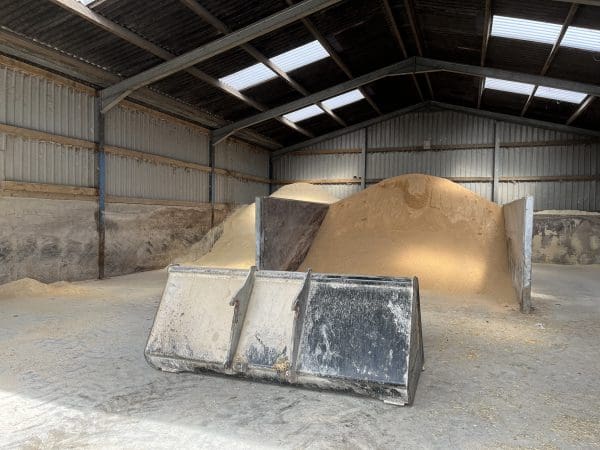
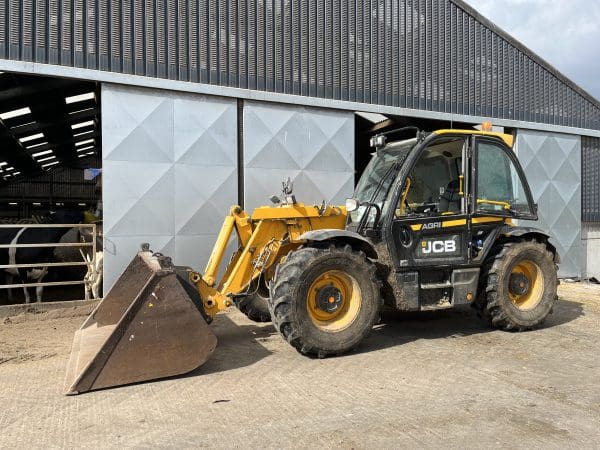
Canady Study Tour
It’s a two-week trip to Canada, we’ll be spending one week in Alberta and one week in Ontario. The main aim behind our trip is to look into sustainability practices and what it means to each and everyone.
It’s going to be very full on. We have roughly two to three farm visits every day for the two weeks, and we’ve actually got an overnight flight from one place to another, so we won’t be getting a lot of rest.
All in all, we’ll be visiting feedlots, big dairies, some pigs, a big potato farm, a sheep farm, a fruit growing cooperative, a canola / oilseed rape processing plant, a maple syrup production plant, and even a vodka dairy distillery, which is carbon neutral apparently!
There’s a few days of social activities as well – we’re going to see the Calgary Stampede, and on the last day before we leave, we’re visiting Niagara Falls.
You had to send an application to SAYFC, explaining why you’d like to go on the trip and what you want to learn from it – how you can grow your business out of it, where you’re wanting to go with your business and why you think this trip would be suitable for yourself.
I think around 50 people got interviews, and there’s 17 of us that were selected by a panel of four judges from different backgrounds, in agriculture mainly.
From a very young age, I’ve been keen on farming and agriculture, and I’ve always known I wanted to dedicate my life to farming. When I left college, I got a job in a neighbouring farm and stuck at that for a while.
I was quite involved with Crossroads Young Farmers. I learned a lot, and there was a good social aspect to it. Unfortunately, I never really got an opportunity to go abroad. I suppose COVID came in at the time when it would have been ideal for myself to work abroad for six months.
Now, being so involved at home, I can’t go away for such a long period of time, so I felt like a short trip like this would be the best way for me to see farming in a foreign country.
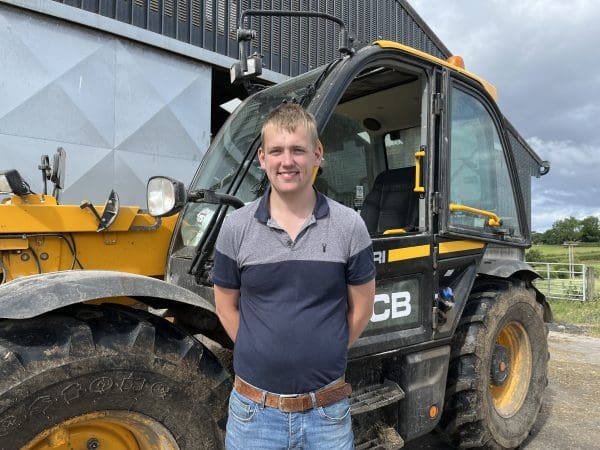
Visiting big dairies, and getting good farming practices from them. A lot of the large dairies in Canada are based on arable farms, and their challenges are completely different to us. But at the same time, they’ve obviously had to deal with extreme weather challenges for a long time, and as we seem to be getting quite erratic, challenging weather cycles now, I’m interested to see how they are coping.
I’m also keen to learn about new export markets for the future. A massive proportion of Canada’s agricultural produce is exported, whereas in Scotland it’s mostly used for the home market, so I want to see how they market their products overseas.
“For me, sustainability means to be able to grow your business to a stage at which you can make a margin every year, so you’re not losing money, you can reinvest towards the future, and you have a good life with it.”
For me, sustainability means to be able to grow your business to a stage at which you can make a margin every year, so you’re not losing money, you can reinvest towards the future, and you have a good life with it.
From a business point of view, our aim would be to grow enough protein to feed our herd, so we become self-sufficient. That’s where I see it going. I don’t see us expanding the herd anymore.
I would say going forward, the future is bright, but there will be times when it’s hard – so we need to make ourselves as efficient as possible to try and avoid, or ride out, the storms of the fluctuating milk market.
Get in touch with your local Hamilton Ross Group depot to find out how you can order your own Massey Ferguson and / or JCB machine.
If you or someone you know has an interest in a career with the Hamilton Ross Group, please send your CV to [email protected] or visit our Indeed page.
